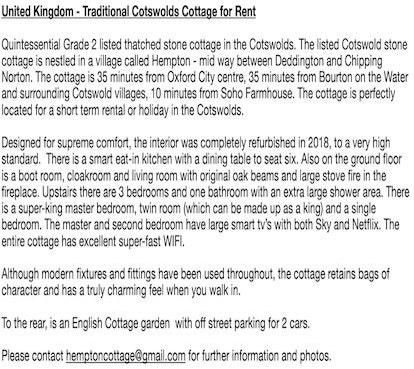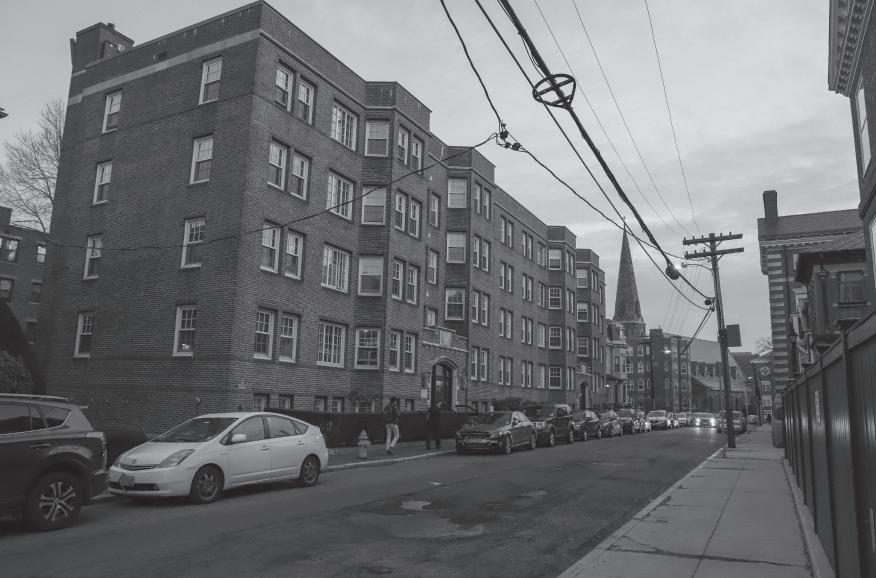THE HARVARD CRIMSON | FEBRUARY 5, 2020
PAGE 6
EDITORIAL THE CRIMSON EDITORIAL BOARD
COLUMN
Sadly, Cannabis Equity Initiative Flames Out
I’m Black But I’m Not a Minority
L
ast week, as a result of a lawsuit filed by medical marijuana dispensary Revolutionary Clinics, a Massachusetts judge lifted Cambridge’s two-year moratorium on the issuance of certain cannabis permits. This moratorium allowed “economic empowerment candidates” such as women, minorities, and those impacted by the war on drugs to be the sole operators of recreational marijuana shops in Cambridge. We regret that the moratorium was not carried out to its two-year term. Lauding the Cambridge City Council’s creativity, we welcomed the moratorium as a genuine effort to both improve socioeconomic equality and remedy historical injustices in Cambridge. Sure, it wasn’t perfect. Upon its passing, we voiced concerns about the scope of economic empowerment candidate being too broad, arguing its inclusion of all women extended this grouping beyond those most impacted by the war on drugs. Nevertheless, we are deeply disappointed that the moratorium was terminated after only a few months, barely touching its two-year mandate. This early termination, without the suggestion of any concrete alternative policies to increase accessibility to the Cambridge marijuana industry for minority groups wronged by the war on drugs, seems indicative of a weak commitment to equal access and the remedying of historical injustices. Cambridge it seems will not find out whether, given two years of implementation, great strides would have been made in righting historical wrongs and assist-
ing those impacted by unequal policing. We simply know that no concrete attempts to accomplish this goal are being undertaken now at the municipal level, and that troubles us. This has not stopped individuals from stepping forward and flimsily committing themselves to the goal of assisting economic empowerment candidates. Keith W. Cooper, CEO of Revolutionary Clinics, said that, despite the moratori-
We are deeply disappointed that the moratorium was terminated after only a few months, barely touching its two-year mandate. um ending, he is not going to “take this victory and turn our backs on that program, [they’re] going to actually support it.” This sort of rhetoric, given that Cooper’s company actively challenged the moratorium in court, is not at all reassuring. Rather, it reinforced the idea that socioeconomic equality and accessibility should be apportioned by generous, largely white business owners. We don’t buy that such a system — predicated on unequal power dynamics and lacking in any sort of assurances — will really do what it claims it will. So what should the City Council do? First, it is imperative that the City Council works quickly to develop a solution to
the dearth of marijuana dispensaries in Cambridge to ensure that patients prescribed medical marijuana can easily access it in their hometown. Second, the City Council should reconsider previous proposals it has been presented with aimed at providing groups wronged by the war on drugs assistance in entering the marijuana market. Prior to the approval of the Cambridge moratorium, an alternate proposal by Councillor E. Denise Simmons — albeit one originally backed by Revolutionary Clinics — was presented that would have allowed other businesses to open dispensaries if they donated to an independent fund that would provide financial assistance to economic empowerment candidates opening marijuana dispensaries. In a market where lack of capital prevents minority business owners from entering the recreational marijuana industry, innovative proposals like Councillor Simmons’ should be thoroughly considered. If the City is truly serious about economic empowerment and equal accessibility, we need to see alternative policies and other efforts that reflect that strong commitment carried to their full term. This staff editorial solely represents the majority view of The Crimson Editorial Board. It is the product of discussions at regular Editorial Board meetings. In order to ensure the impartiality of our journalism, Crimson editors who choose to opine and vote at these meetings are not involved in the reporting of articles on similar topics.
Submit an Op-Ed Today!
The Crimson @thecrimson OP-ED
More Than Skin Deep By C.J. PASSARELLA
I
spent part of my winter break on a six-day mindfulness retreat hosted by the Center for Wellness. It was spent mostly in silence, and with no friends and no phone. I found myself with ample time to reflect on my first semester and the kind of person I wanted to become during my stay in Harvardland. By night one, though, my welcome escape from the stressors of the real world was shattered. I had an eczema flareup. I was born with moderate to severe eczema, and with the help of my mother and a rotation of lackluster dermatologists, I have managed to survive and keep it from getting to the point of infection — but that’s about it. I avoid the foods my allergist says to avoid, I always have some moisturizer with me, and I’ve never worn a piece of polyester clothing in my life. I buy dyefree detergent, try experimental treatments from time to time, and am still largely at the mercy of my immune system. Are my assignments overwhelming me? Is it a bit too humid out? My skin can tell you an astonishing amount about
I spent part of my winter break on a six-day mindfulness retreat hosted by the Center for Wellness. It was spent mostly in silence, and with no friends and no phone. how the world is treating me at any given moment. At the slightest inconvenience, an itch begins deep within my bones. This
itch has been compared to a bout of severe poison ivy, but that’s just not true — poison ivy does not last a lifetime, for one thing. Scratching sporadically throughout the day, and especially while sleeping, is a genuinely unavoidable, reflex-like reality for eczema sufferers. The itch was not what made the flareup on the retreat particularly painful, nor was it the aching in the backs of my knees that followed. What pained me most was the realization that I didn’t need to spend six days in the Massachusetts wilderness, silent and sans phone, to feel isolated. The most isolating part of my existence was laid out right in front of me, in the form of bed sheets covered in my own blood and dead skin. My skin forced me to grow up in isolation. I had to watch, alone, as other elementary schoolers took one look at me and stepped back in silent disgust, afraid I was suffering from something contagious. I listened, still alone, as adults condescendingly explained my own affliction to me, offering up rudimentary and unsolicited advice that I’d quite literally been following since infancy. This got better as I got older and grew into myself, gaining probably a little too much confidence to overcompensate for my skin. The people I’d always gone to school with got used to my eczema, and by the time I graduated high school, it had become one of the least interesting things about me (thanks for that one, Harvard). But now I’m in a new place, without a single person I knew during the first eighteen years of my life. I meet new people every single day and rarely do they manage not to react to the redness and scaliness of my hand before shaking it.
I walk through the Yard and pretend not to notice as passersby examine my forearms and neck with curious faces. I make up for it all by dressing and acting ridiculously over-the-top, doing any-
I’m so accustomed to trying to be anything other than The One With The Skin Thing that I often forget how lonely this experience is. thing to distract people from my worst and most noticeable trait. I’m so accustomed to trying to be anything other than The One With The Skin Thing that I often forget how lonely this experience is, and how emotionally exhausting it is to never quite feel like I can fully be myself even when I’m in the company of close friends and family. I’m often told that my eczema is a minor problem, and any emotions surrounding it are invalid because, in the wise words of Kourtney Kardashian, “there’s people that are dying.” Life at Harvard has proven to me, though, that my skin is just the tip of the iceberg. As I return to a world with eczema at the forefront, I’ve come to understand that it will be like this for the rest of my life. So, I don’t want you to imagine yourself in my skin or feel bad for me because it is mine. I just want you to listen to me as I tell you what it’s like to live with this, never quite escaping the isolation that comes with it. —C.J. Passarella ’23 lives in Matthews Hall.
Marcus B. Montague-Mfuni AFRICAN, AMERICAN
I
am not a minority — that is, in my thoughts, spirit, and mind. In the way my brain processes the world at most times I am part of a majority. Not because I am living in some chilling alternate universe where I think I am white. Or because I deny the clear reality that there are fewer black people in America than other racial group members. Rather because I literally grew up as part of a majority in South Africa. Despite all the persisting problems with race since apartheid, black people in most spaces in the country feel the social privileges of being part of the majority in South Africa. I never got stares while shopping in stores. I never had the honest thought that my government had it out for black people. I never applied Western beauty standards to myself. I never feared the police. Any black South African regardless of their economic, educational, or other status can walk through the wealthiest neighborhood in Sandton, Johannesburg like it is their own, because it is their own, and they will proudly proclaim it as their own. What this different experience of blackness leads to is a disconcerting disconnect forming between myself and black Americans. Fundamentally, there is something in the different ways that black Americans and Africans connect with each
Despite all the persisting problems with race since apartheid, black people in most spaces in the country feel the social privileges of being part of the majority in South Africa. other that feels incompatible. The causes of that seem intangible. Something just feels ... off. This is not a position I imagined I would be in. I was born to a black American mother. I carry in me the same brutal scars of a stolen heritage and slavery all the way through to the continuing burdens of the American oppression of black people. I was not raised in the absence of my American family, their influence, or our culture. Hence, I never thought black Americans would be the group with whom I would struggle to connect with the most in America. But now that I am living here, even as I am experiencing America as the rest of black America does, that is the situation in which I find myself. I have found, though, that this feeling is not a unique experience. Among the black South African people I’ve spoken to studying in the United States, it is a near-universal reality. Black Africans are used to being the majority. As a result, we do not identify with each other as tightly as minority groups here because we’ve never had to for our safety or sanity. We engage differently with government because black people control most institutions and set them up for our benefit, not our demise. We interact differently with authorities because in reality, we have grown up in, they are not out to get us. And this rift is not even touching on the larger tensions between black Americans and Africans. I find this disconnect bedeviling. We as the global black youth, regardless of origin, inherit a collective responsibility to continue the work that has been done by our people. The vestiges of oppression, be it colonization and apartheid or slavery and Jim Crow, manifest themselves currently in a way that affects every single black person on this planet. We can not allow ourselves to be comforted by the progressive sounding policies or the growing comforts that come with middle-class-dom. Not until we attend to the wounds that can never be truly healed in the black psyche no matter how much political freedom or economic access we gain. We need to decolonize the ideas around blackness and black people. By ourselves and for ourselves. We need to rewrite the histories of the world without the black parts being whited out. Never let anyone tell you that civilization started in Greece. Never let anyone say formal education as we know it was started in Europe. Never let anyone preach that the morals and values of the world stem from any Abrahamic religion. These pieces of history are but small fractions of the larger truths about the stories of human development. The fact that I cannot regard them as common knowledge among black people is devastating. It is racism still taking its toll on all of us as a people. Black greatness that is still suppressed or shackled away affects us all the same — regardless of what flag was loosely stapled to your melanin by some dead white man. Fighting this deeply entrenched form of racism will take a unified front on a global scale never before required of black people. This racism is much more metaphysical than any law or constitution. But it is, importantly, more universally fundamental to the meaning of being black. This cannot be a time that we divide ourselves as black people. Not on continental borders, not on national borders, and not on class lines. Not by whether we grew up as a minority or majority. We must all be stronger than succumbing to these easy forms of division if we wish to truly experience contentment in the world we live in and will pass on. —Marcus B. Montague-Mfuni ’23, a Crimson Editorial editor, lives in Pennypacker Hall. His column appears on alternate Wednesdays.




